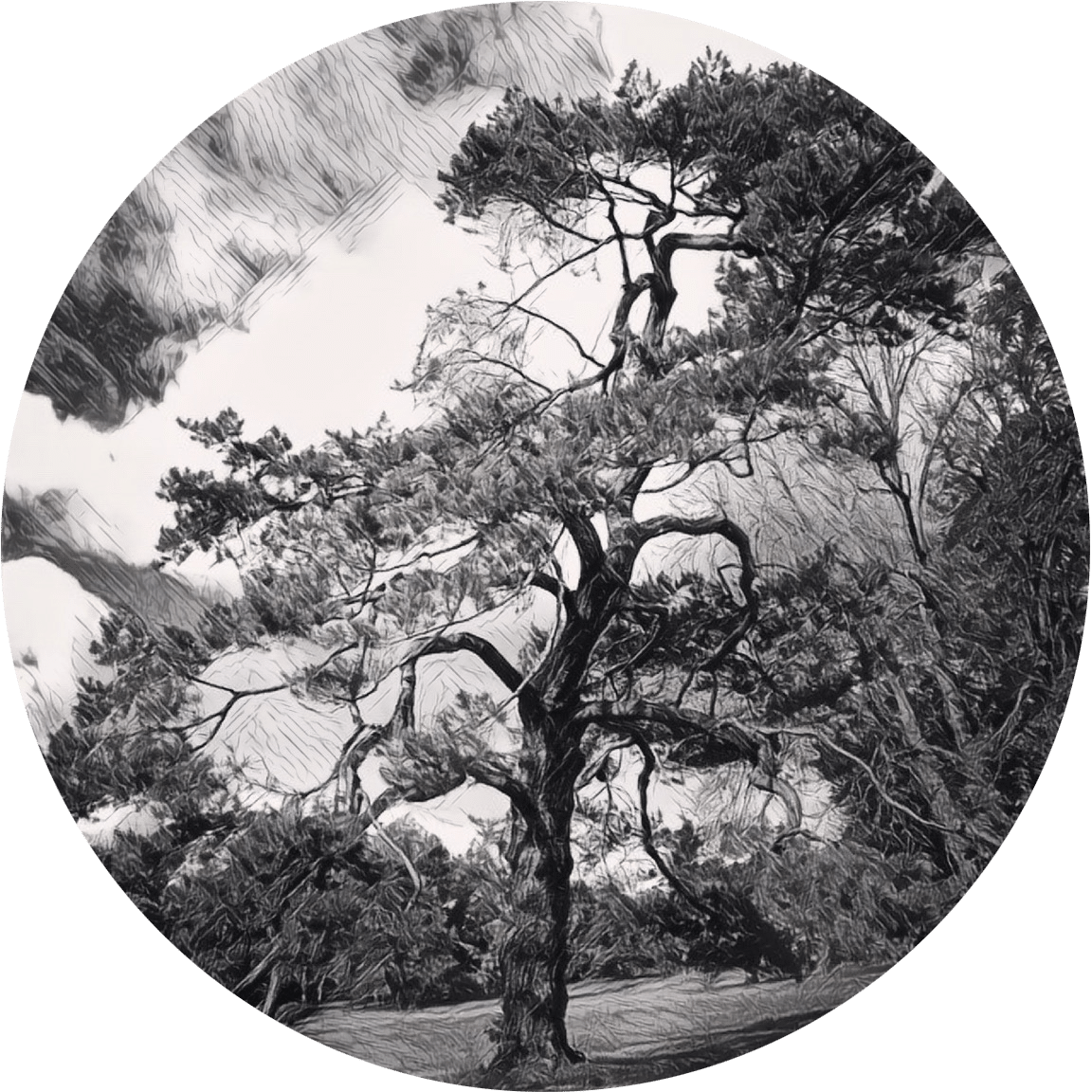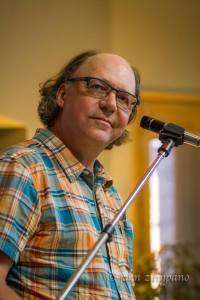 In this 5On interview, author Russell Rowland on publishing horror stories, what keeps him writing through “why bother?” moments, marketing, and more.
In this 5On interview, author Russell Rowland on publishing horror stories, what keeps him writing through “why bother?” moments, marketing, and more.
_____
Russell Rowland is the author of In Open Spaces, The Watershed Years, and High and Inside, and and editor with Lynn Stegner of the anthology, West of 98: Living and Writing the New American West. Rowland has an MA in Creative Writing from Boston University, and has taught at Boston University, St. Mary’s College, where he was Writer-in-Residence, Montana State University-Billings, Gotham Writing Workshops, and The Loft. He served as fiction editor of several online magazines, including Stone’s Throw, which he co-founded with fellow Montana writer Tami Haaland.
Rowland lives in Billings, Montana, where he is currently at work on a non-fiction book, Fifty-Six Counties: An American Journey. He also does private editing and writing coaching. He can be contacted at rowlandrussell@gmail.com.
.
5 ON WRITING
CHRIS JANE: Aside from the obvious – I enjoy it and feel compelled to do it – I sometimes ask myself, “Why write? Why spend so much time and devotion on something that may or may not get read?” Do you ever have questions or doubts about what you’re doing – not necessarily in the same way, but in any way?
Russell Rowland: For me, writing seems to come from that strange place where I think I have something to say but I also am scared to death that nothing I say matters. It’s where the egomaniac meets the skinny little insecure teenager that I was. I question what I’m doing all the time, but that’s also a huge part of what motivates me. A student of mine recently said that she writes because she considers it an opportunity to teach others. I have just the opposite approach. I write because I think I have very little to teach, and a lot to learn.
Say you’re supposed to be writing, but you just can’t do it that day. What are you most likely to be found doing instead when you’re supposed to be writing, and what do you do to eliminate distractions?
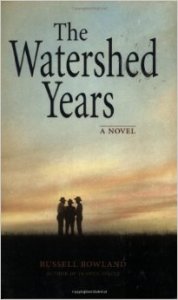 If I sit down to write, it’s incredibly rare for me to draw a blank. I’ve been very lucky that way. But when it does happen, I read. I don’t have enough time to read as much as I do anyway, so that’s a good excuse for me to pick up that book I’ve been meaning to read. If it’s more of a restless energy, then I’ll go to the gym. But mostly it’s reading.
If I sit down to write, it’s incredibly rare for me to draw a blank. I’ve been very lucky that way. But when it does happen, I read. I don’t have enough time to read as much as I do anyway, so that’s a good excuse for me to pick up that book I’ve been meaning to read. If it’s more of a restless energy, then I’ll go to the gym. But mostly it’s reading.
How do you plot your stories? Do you outline? Tack pictures around your computer to represent characters and places (author Caroline Leavitt sometimes shares her pictures of inspiration on Facebook as she’s writing)? Or do you write straight through?
I have never plotted or outlined a book in progress, but I do use storyboards for my later drafts. I’ve done that two ways, with a big sketch pad, or with 3 X 5 cards. I’ll make an entry for each chapter that includes the main characters, the main source of conflict, and what I’m trying to achieve with that chapter. It’s a great way to figure out whether there are gaps in the story, or places where certain characters disappear for too long, or chapters that aren’t relevant. I’ve found that very helpful. But in general, I’m of the opinion that outlining too much kills the spirit of my stories. They need to have room to breathe.
If you’re in a tricky scene – stuck on what a character’s response will be, or not sure what a character will do next – what do you do to move forward? How do you find that response or behavior?
That’s really hard to answer. I just write it, I guess. I don’t know whether I’ve ever had any special trick to figuring out where to go with a scene. I have had occasions where I got stuck on a scene and wasn’t sure where it would go, but it’s always been my experience that if I take a break from it, and go back and read it from the beginning again, it will eventually come to me.
.
.
5 ON PUBLISHING
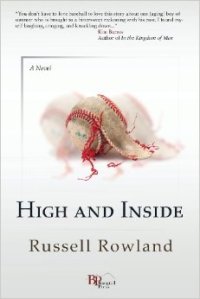 What is the revision process like for someone who has a publisher and editor? Do you write and revise on your own before submitting it to your editor, or do you seek feedback from careful and respected readers as you’re revising to make sure you submit your best possible product to your editor?
What is the revision process like for someone who has a publisher and editor? Do you write and revise on your own before submitting it to your editor, or do you seek feedback from careful and respected readers as you’re revising to make sure you submit your best possible product to your editor?
This process has been different for each of my books, so again, this one’s kind of hard to answer. For my first novel, I got a ton of feedback from trusted friends before I ever sold it. It took eleven years to get it published, so I did a lot of rewrites when it wasn’t rotting away in a drawer somewhere. And when I finally did sell it, my editor told me two major things she wanted. Cut 100 pages, and somehow insert more of a plot. Both of those proved to be huge challenges, but I was able to do both. Since then, I’ve come to rely much more on just a handful of people, but I still do a lot of rewriting before my books hit the shelves. I’m a big believer in revision. I have done the second draft of all of my novels in longhand so that I slow down and think about what I’m doing more. That has been extremely helpful.
What has been most successful for you when it comes to gaining visibility?
I am horrible at this part of the business, so I don’t have much to offer in that respect. I find marketing to be extremely uncomfortable. I hate going into bookstores and introducing myself. It feels pretentious. I suppose the thing that has probably garnered more support than anything is facebook, which I find to be way more comfortable because I don’t have to look people in the face when I’m promoting myself. But that part has never been easy for me.
What is your opinion of self-publishing?
I think self-published books have gained a lot more respect in the past five years. With the publishing industry becoming more focused on numbers every year, the number of very good writers who can’t find a home for their books despite good track records is growing all the time. I know way too many talented writers who are having a hard time getting published. So it’s a viable option these days. And the challenges are not that different from getting published by a small press, because either way, you have to do most of the marketing yourself. I think it has had a tremendous impact on the publishing industry, and will continue to do so.
Do you write within a certain parameter to be consistent with an author brand (and thereby reduce the challenge of marketing), or do you simply write what you want to write?
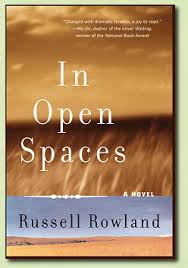 I just write what I want to write. My second novel was written at the request of an editor, and it is the one I am least pleased with. I should also add that the editor who requested it didn’t buy it, either, because he left the business before I finished it. That was a dark time. I ended up losing my connection to a major publisher and in some ways I’ve been trying to recover ever since.
I just write what I want to write. My second novel was written at the request of an editor, and it is the one I am least pleased with. I should also add that the editor who requested it didn’t buy it, either, because he left the business before I finished it. That was a dark time. I ended up losing my connection to a major publisher and in some ways I’ve been trying to recover ever since.
How do you feel when a new book releases? What do you think about?
There is nothing like having that first book out in the world. I was living in San Francisco when IN OPEN SPACES came out, and I woke up and got the Sunday paper about three weeks after it came out, and there was my name on the Chronicle’s bestseller list. That was probably the highlight of my publishing career. It was reviewed in the Times a few months later, which was also very nice. As far as what I think about, I think each time a book comes out, it goes back to your first question…it validates that feeling that there are people who are interested in what I have to say. That’s nice to know.
Thank you, Russell.
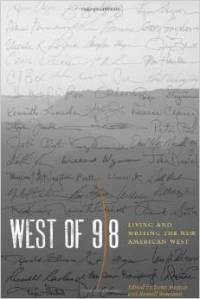 BIO: Russell Rowland has become one of the premier voices of Montana literature, with three novels, In Open Spaces, The Watershed Years, and High and Inside, and an anthology, West of 98: Living and Writing the New American West, which he edited with Lynn Stegner. Rowland has an MA in Creative Writing from Boston University, and has taught at Boston University, St. Mary’s College, where he was Writer-in-Residence, Montana State University-Billings, Gotham Writing Workshops, and The Loft. He served as fiction editor of several online magazines, including Stone’s Throw, which he co-founded with fellow Montana writer Tami Haaland.
BIO: Russell Rowland has become one of the premier voices of Montana literature, with three novels, In Open Spaces, The Watershed Years, and High and Inside, and an anthology, West of 98: Living and Writing the New American West, which he edited with Lynn Stegner. Rowland has an MA in Creative Writing from Boston University, and has taught at Boston University, St. Mary’s College, where he was Writer-in-Residence, Montana State University-Billings, Gotham Writing Workshops, and The Loft. He served as fiction editor of several online magazines, including Stone’s Throw, which he co-founded with fellow Montana writer Tami Haaland.
Rowland lives in Billings, Montana, where he is currently at work on a non-fiction book, Fifty-Six Counties: An American Journey. He also does private editing and writing coaching. He can be contacted at rowlandrussell AT gmail.com.
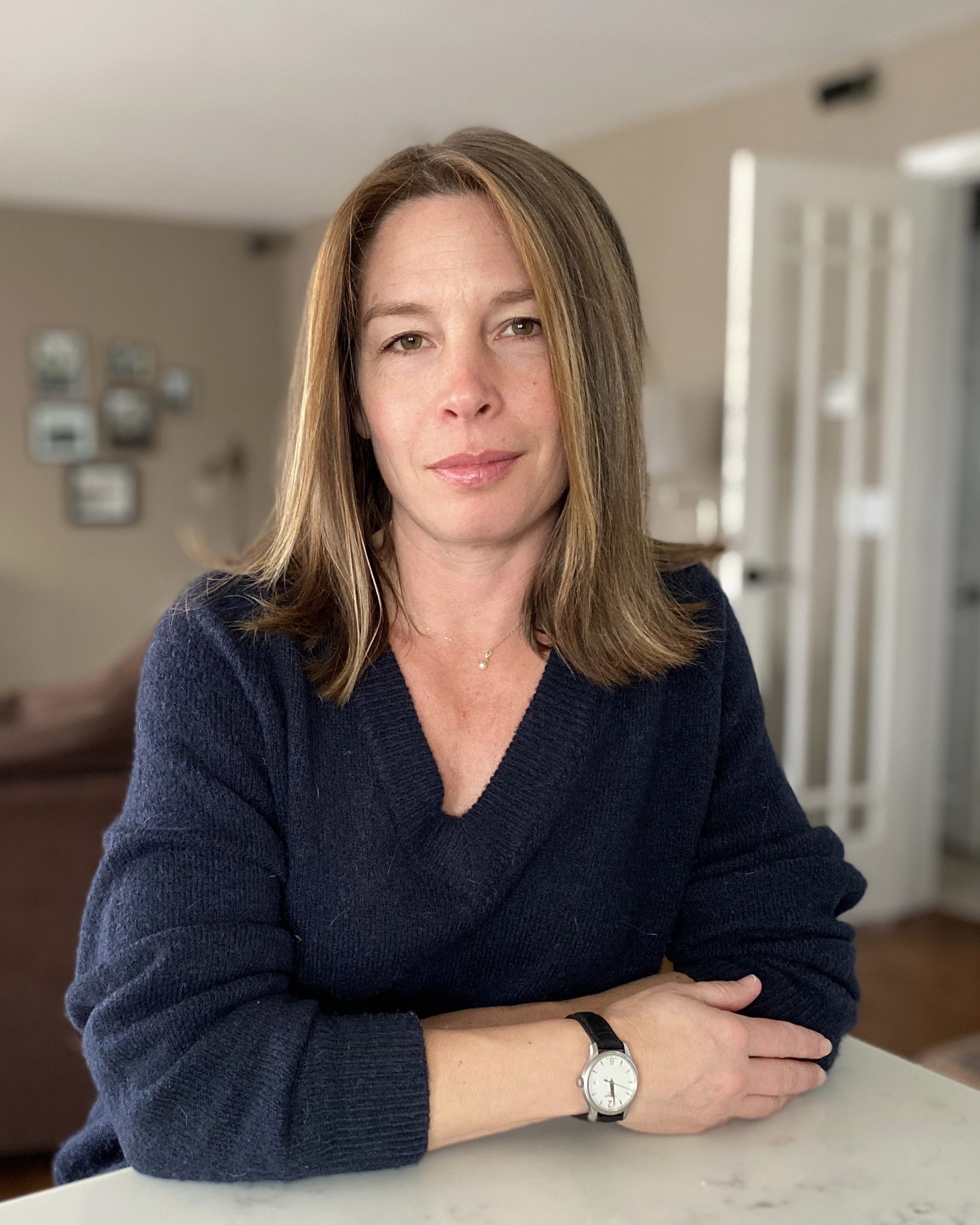
Kristen Tsetsi is the author of the post-Roe v. Wade novel The Age of the Child, called “scathing social commentary” and “a novel for right now.” She is also the author of the novels The Year of Dan Palace and Pretty Much True (studied in Dr. Owen W. Gilman, Jr.’s The Hell of War Comes Home: Imaginative Texts from the Conflicts in Afghanistan and Iraq). Kristen’s interview series at JaneFriedman.com offers behind-the-scenes insights into all things writing and publishing.


